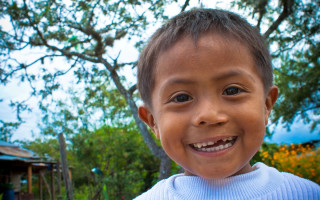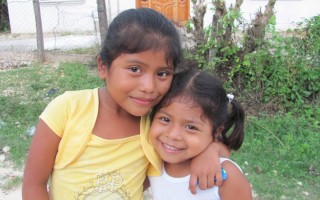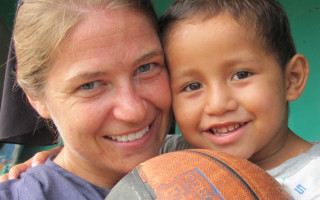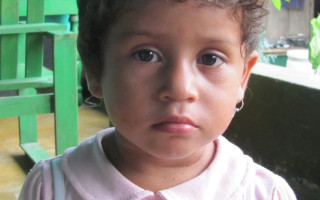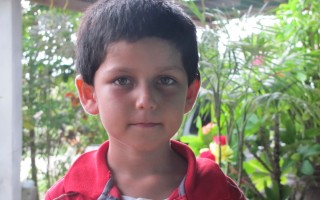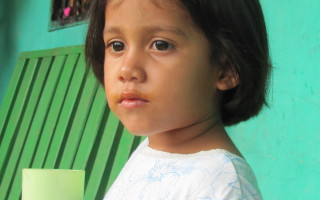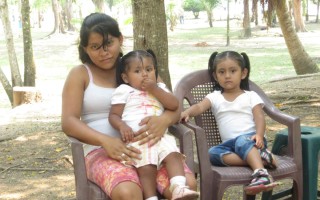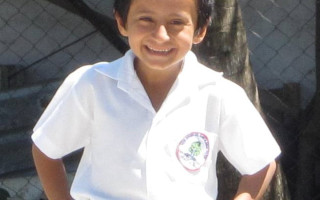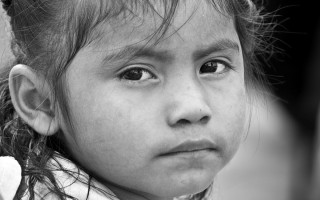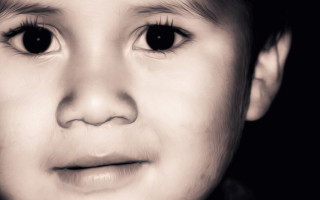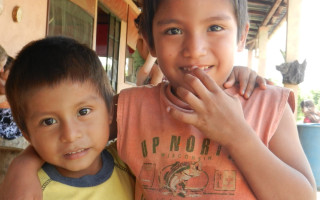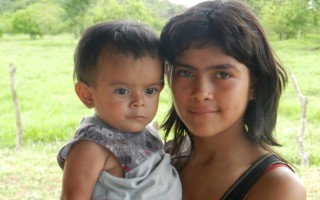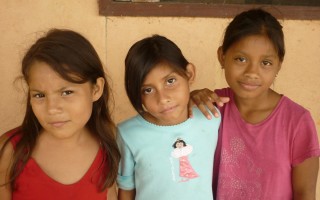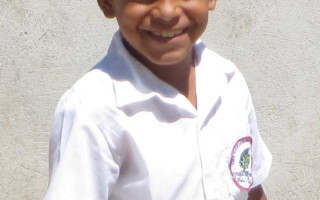Can You Find My Parents?
- Waneda Erb and a child from El Chal
- Cuarto Excursion 2013 Rio Dulce
The carefully held-in scream suddenly broke through my pinched lips and joined my sisters’ screams as we were lifted high off the ground. I clung to my sister’s hand as she clutched the edge of the backhoe’s loader. Inside the cab our dad cautiously operated the levers. Eventually we got enough nerve to let go and wave to our mom, who was standing far below capturing the moment on camera.
It was the perfect ending to a very normal day. It was summer, which meant picking strawberries for most of the morning. We spent our afternoons playing with our dolls, waiting for Dad to come home from work, always hoping that tonight he would play baseball with us. I have many sweet memories of my childhood innocence. Happiness, contentment, and love swirled all around us.
Normal. What is a normal childhood, anyway?
For years, I thought my childhood was normal. My parents loved us and gave my sisters and me a balanced life of hard work and vacation. Not until I grew up and moved to another country did I realize just how abnormal my childhood really was.
Since arriving in Guatemala, I have observed many sad and lost children. I have listened to their hearts, loved them, hugged them, laughed with them, and cried with and for them.
My fingers ache to type out the sad stories of the children I work with and the many questions I have about their sad little lives, their childhood innocence lost because of selfish choices by their parents.
A quick survey of the students in our school gives us the startling statistic that 44% have both real parents living with them. The remaining 56% of the students are a heart-rending assortment of broken homes. Of these, a disturbing 42% are broken because one or both parents are either working in the States or in another part of the country. 9% of these families have lost their dad to murder or death by some other means. Although the remaining percentage may be small, it says nothing about the loneliness children feel for an absent parent, or the shame they feel when they can’t say who their dad is.
Last fall as I was flipping through hundreds of student photos on my computer, I felt like I could see into their little hearts through their big black eyes. Memories of the little pieces of their lives which they entrusted to us flooded my heart, and I wished to speak to the absent parents. I wanted them to see a little bit of this side of the story; to tell them about the holes I see in their children’s lives. I wanted them to know just how precious their child really is, not only to us, but to their Creator. These little children aren’t like toys and dishes to be left here and there. They have souls; souls that need nurturing as they grow to serve God as He intended.
The first time that a student at the Tree of Life School in El Chal, where I work, begged me to be her mother, I was startled. I couldn’t imagine why they wouldn’t want their real mother. When it continued to happen, I began to understand a little how they feel. They want more than a voice over a telephone. They want more than the sparkling new shoes and the latest computers that their parents send them from the States. They want someone whom they can touch; someone who will listen to their fears and who will show them in action what it means to love.
An eleven-year-old girl whose mother had gone to the States ten years before was one who begged me to be her mom. In the course of the conversation, I asked her if she remembers her mother. “No,” she answered.
“How do you know you miss her if you don’t remember her?” I asked.
“I don’t know,” she shrugged. “I just do.” Holes. Big holes. Unexplainable holes.
Knowing that many children had absent parents, I used to naively explain to the children that God is like a father. The skeptical looks on their faces told me that something didn’t make sense. Finally one boy put it into words. “That’s only in your country,” he said. Slightly horrified, I began to rethink how I could tell them of God’s great love.
Let’s try again. God is NOT like your father. God IS present. Always. God LOVES you. Always.
But what about the other 44% of children who live with both parents? I wish I could say they all live happily ever after. Some do, and how we love to see responsible, secure children!
But the others . . . Well, we could split them into statistics too, but they are more than statistics. They are the brown-skinned hugs that I feel every day. They are the gelled black hair that I pat. They are the bright black eyes that look up to me as they excitedly tell me that they got 100% on the quiz the day before.
They may have two parents, but as the first grader told his teacher, “My dad doesn’t love my brother or me. He just loves our little sister.”
Would you feel respected by your mom if she degradingly called you “Negro” (black) because of the color of your skin? Would you feel like confiding in your dad if he drunkenly tried to hug one of the school staff to show his appreciation for what we are doing for his children?
How would you feel if your mom cared for you, but just materially? She would leave enough money for you to buy your food, but if you wanted to talk to her, you would need to get up really early or stay up late until she came home from work.
Children are crying all over the world. They are losing their childhood innocence because their parents aren’t around to protect them. They want parents who spell love like T-I-M-E, not like M-O-N-E-Y. Money doesn’t buy a child security, happiness, or innocence.
Now I realize that I had an abnormal childhood. I had two parents who lived together and loved each other and their six daughters. How blessed I am! I thank God and my parents for giving me an abnormal, wonderful childhood.
Will you join us in praying for the children who live a normal life?
~Waneda Erb
::Note:: To download a PDF of the entire Newsletter for these two months simply click the link below!
September/October 2013 Newsletter
